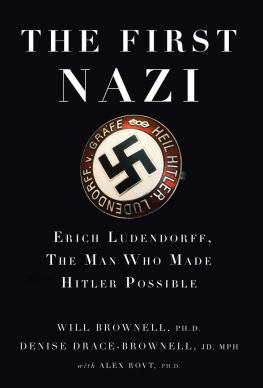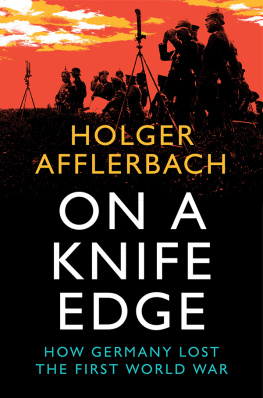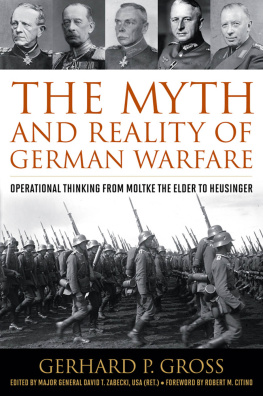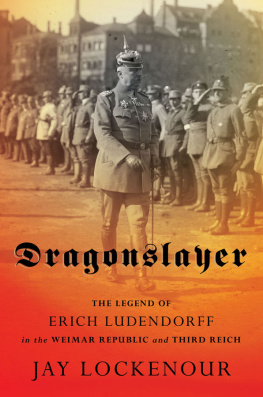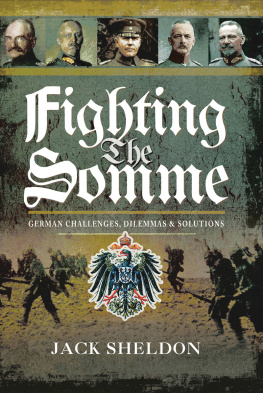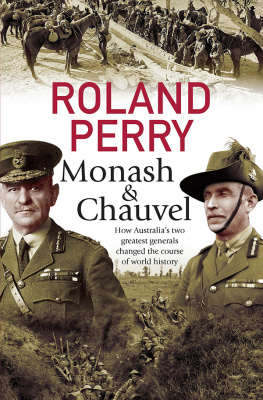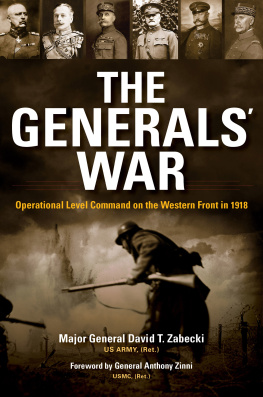
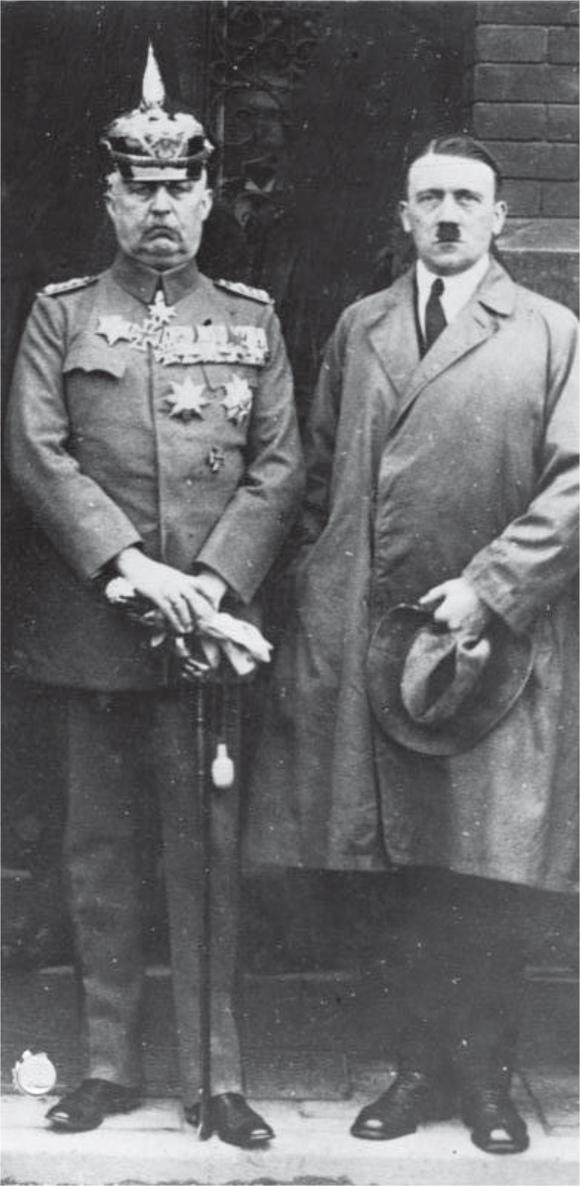
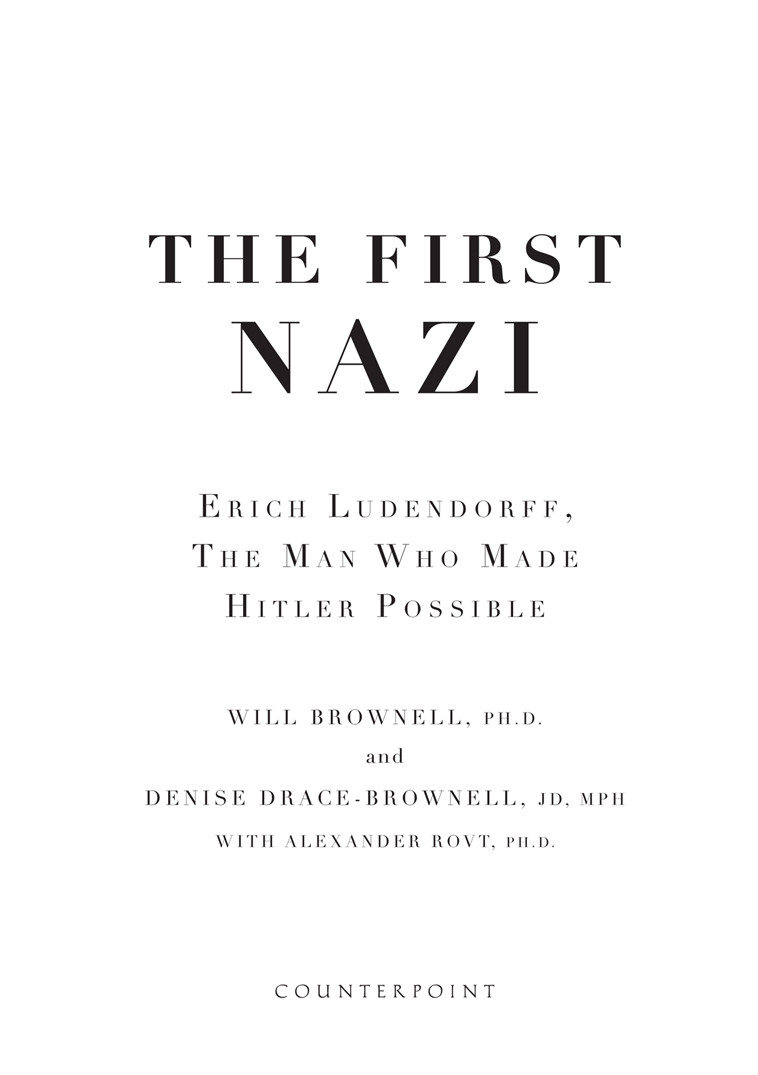
Copyright 2016 by Will Brownell and Denise Drace-Brownell
All rights reserved under International and Pan-American Copyright Conventions. No part of this book may be used or reproduced in any manner whatsoever without written permission from the publisher, except in the case of brief quotations embodied in critical articles and reviews.
Library of Congress Cataloging-in-Publication Data is available
ISBN 978-1-61902-609-4
Cover design by Kelly Winton
Interior design by Megan Jones Design
COUNTERPOINT
2560 Ninth Street, Suite 318
Berkeley, CA 94710
www.counterpointpress.com
Distributed by Publishers Group West
10 9 8 7 6 5 4 3 2 1
e-book ISBN 978-1-61902-758-9
CONTENTS
A N AMAZING FUNERAL took place in Germany in December 1937, just before the beginning of the Second World War. At that time General Erich Ludendorff was laid to rest, with Hitler in attendance, in a celebration of Nazi optimism.
The honors were many. Life magazine declared that Ludendorff was magnificent, and their headline proclaimed, Germany Buries the Greatest General of the [First World] War. It was a stupefying statement, declaring this man more remarkable than General Pershing of the US Army; General Foch, the supreme commander of Allied forces in the West; Winston Churchill, the rising young leader in London; General Alexei Brusilov in Moscow; and anyone else of stature. The journal said that Ludendorff was the ablest general developed by the World War and the military peer of Robert E. Lee.
The article explained that Ludendorff was the brains of the German Army; the right-hand of Hindenburg, who led that army; and the supreme strategist of Germany of the time. He had mauled whole armies from Russia, Romania, France, Britain, and Italy. So great was the prestige of Ludendorff and his friend Hindenburg that, the article noted, Even the Kaiser took orders from them.
The magazine offered some criticisms, though. It claimed that Ludendorff fell apart in defeat when his army died in 1918. And it added that when Germany lost that world war, Ludendorff scurried off like a frightened man, wearing a wig and blue glasses for a disguise, to neutral Sweden. Finally the article reported that Ludendorff was seen as a tad paranoid and that he saw conspiracies everywhere, by the Masons and Jesuits, Catholics and Jews, all of whom he blamed for causing Germanys woes. It also noted that after the First World War, Ludendorff marched beside Hitler.
But that was all that was negative. Generally the article was positive, with strong praise about Ludendorffs being the greatest general of the war and about how he received a funeral worthy of his place in history. The funeral organizers put Ludendorffs sixty medals on display and brought out a huge military band, which played the German war song The Good Comrade. It was thunderously impressive.
The only surprise for anyone viewing the photos that accompanied the Life magazine article might have been that Ludendorffs coffin was bedecked with the battle flag of the Kaiser and not the swastika of Hitlers new Germany. Some might have guessed that the two had a falling out, but few likely noted the difference. Indeed, it hardly seemed significant at that time.
Amidst all the praise, Life did not mention that Ludendorff invented the murderous slander that the Jews had made Germany lose the war, or that in revenge he wanted to gas the Jews the same way that German soldiers had died on the fields of battleby poison gas. Also, no one noted that Ludendorff had extended Germanys agony in the First World War by two excruciating years, or that he had blocked a compromise peace halfway through that war that could have saved Germanys soul. Nearly no one knew that this man had arranged for Lenin to travel to Russia in a sealed train, like a deadly germ, to infect that nation with a ferocious Communist revolution that would destroy its chances for democracy for a long time to come.
The article did not hint that Ludendorff had launched the Ludendorff Offensives against the Allies in 1918, which cost Germany more than 900,000 men, and indeed the war. Nor did the article indicate that Ludendorff, after he lost the war, helped launch the Nazi Party, initiated a powerful propaganda campaign to dismember the new German government, and then worked with his new friend Hitler to map the road to revenge. Remarkably, the article gave no hint that this man had spent the last two decades urging Germans to wage a new war, a war of revenge, to realize all the mad dreams he had failed to achieve in the last great slaughter.
Why did no one sense that this man was sponsoring a savage new age? Why did no one see that this man was pushing Germany toward a gigantic new barbarism, a second world war? Why did no one suggest that his early support of Hitler in the 1920s was vital in helping that madman on his road to power, or that this support aided Hitler to murder so many millions?
Everyone understood that Ludendorff was brilliant in tactics, but few pointed out that he was also a genius when it came to blaming others for his errors. That he could lose the First World War and then blame the Jews for his loss shows this. But how did he do this with no evidence to support the slander?
General Erich Ludendorff may have been one of the two or three most destructive men of the twentieth century. How he accomplished this without being remembered as the assassin that he was, is a staggering story.
This is the story we wish to tell today.
We also wish it understood that we want this book to become accessible history for the public at large, a new kind of serious historical biography.
W ORLD WAR I began in a fit of absentmindedness. A mere archduke of Austria and his wife were visiting a minor city called Sarajevo, the capital of Bosnia, on June 28, 1914. A patriotic student named Gavrilo Princip, who wanted the Austrian province to secede and join with Russia, shot the archduke in the chest and, accidently, shot his wife too. The archduke was rushed to the hospital, but the doctor could not unbutton his tunic. He did not know that the elegant archduke was sewn into that tunic every morning, in an effort to look trim. Precious seconds were lost as the doctor tried to get the tunic open to stop the bleeding. Swiftly the well-dressed archduke bled to death.
Furious, Austria demanded satisfaction from Serbia and made brutal ultimatums. Outraged, the German Kaiser, Wilhelm II, backed his Austrian allies. Emboldened, the Austrians declared war on Serbia, whom Russia supported. Russia declared war on Austria in a rage, and Germany then declared war on Russia, equally raging. Russias ally France then declared war on Germany. England tried to stay out of the fray, and in several respects there were rationales to keep England out. But there were major elements that seemed to force England to participate. For years British statesmen had concluded that it was vital to their interests that no one power become supreme on the continent. This alone seemed to force England to go against Germany. Second, the British had signed a treaty in 1839 pledging that they would help Belgium in just such circumstances as these. And third, the new German Navy, while inferior to the Royal Navy of England, was nonetheless seen as a major threat to Britains sea power. These three reasons, no one of which was vital, were decisive in sum. And in just a few days the awesome power of imperial Britain entered the conflict, with staggering consequences. In weeks Europe was at war.
Next page
